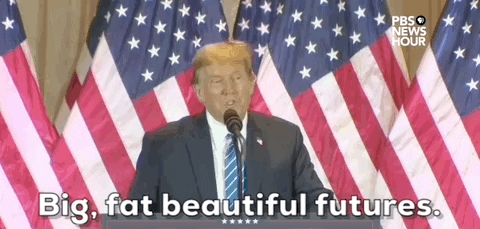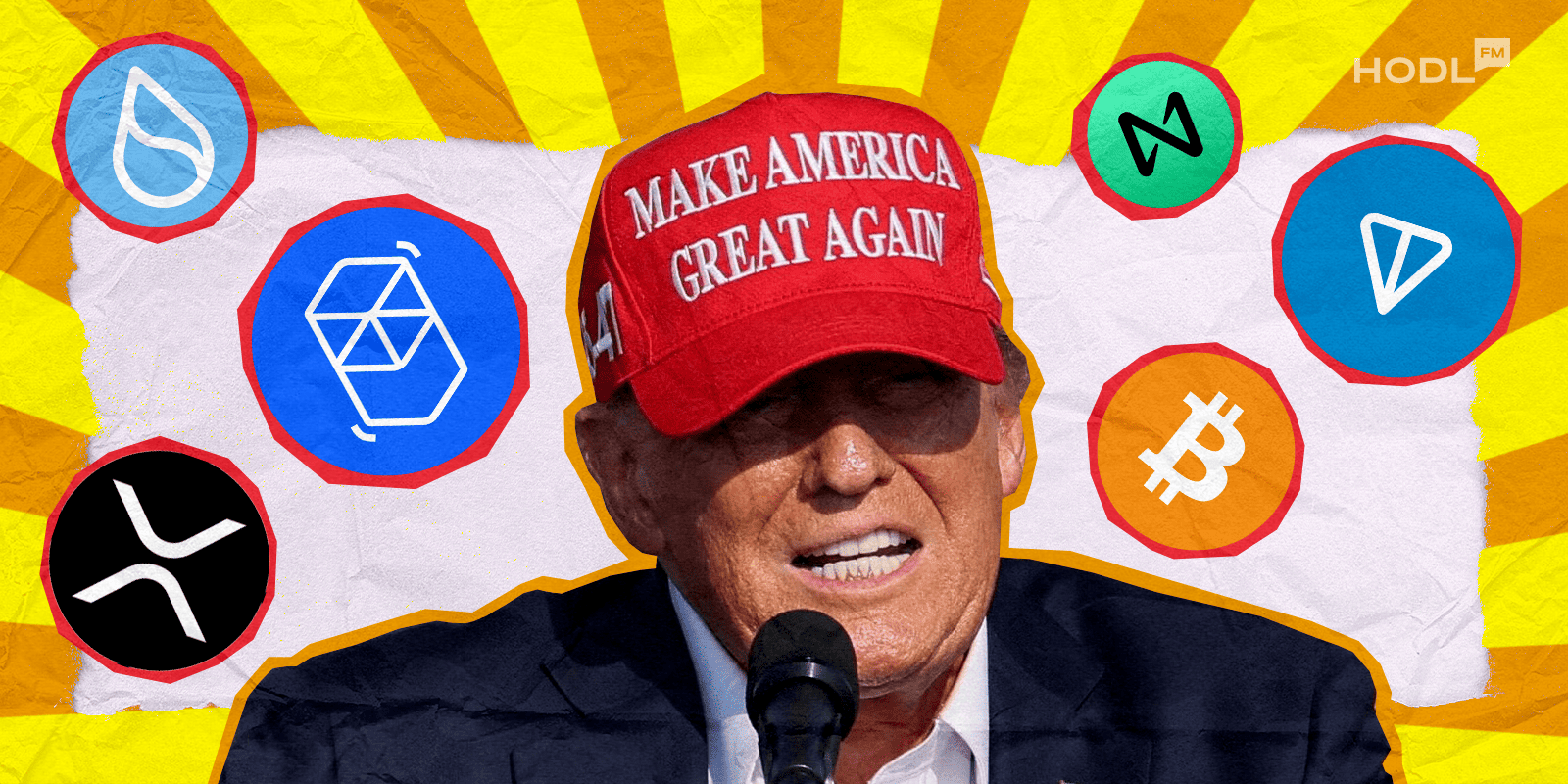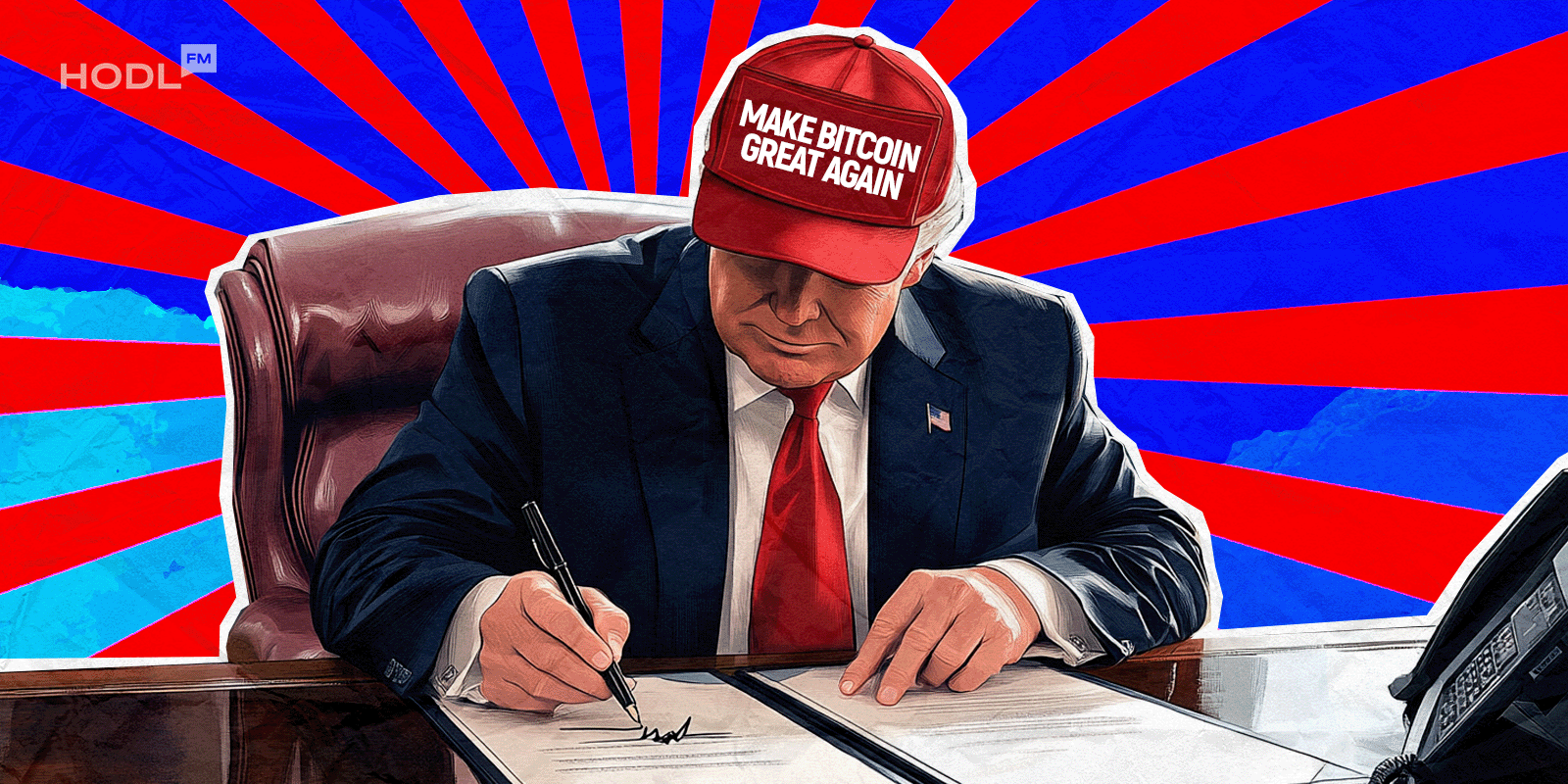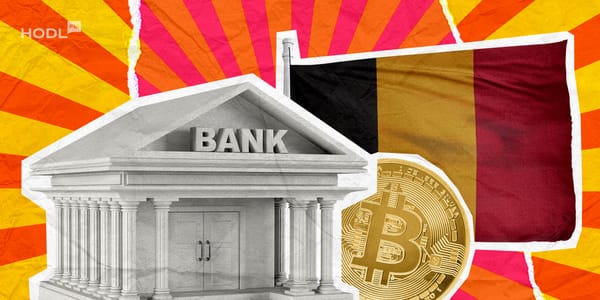Trump’s One Big Beautiful Bill (OBBBA) and the GENIUS Act, at first glance, seem like two completely different beasts, right? But dig a little deeper, and you might just start seeing the kind of fiscal symbiosis MAGA’s been cooking up.
These bills? They’re like two puzzle pieces fitting together to form a new economic reality, one where financial control and national sovereignty are the true power moves.
Dollar Demand Engineering
Let’s start with the Big Beautiful Bill, a $3.3 trillion fiscal package that passed through both chambers of Congress. It’s heavy on taxes, military spending, and welfare cuts. Oh, and it’s also raising the debt ceiling by a whopping $5 trillion, pushing the deficit up by $3.3 trillion over the next decade. The big question, though, is: Who’s going to buy all that shiny new government debt?

Cue the GENIUS Act to save the day.
This bill demands that stablecoins are backed 1:1 by US dollars or short-term Treasuries, which could create a tidal wave of new demand for government bonds, an estimated $1.2 to $1.6 trillion. Basically, stablecoin issuers are now on the hook for buying up Treasuries, creating a smooth, quiet mechanism to soak up all that new debt.
LIVE: With the Big Beautiful Bill passing, national debt is forecasted to reach $40 TRILLION this year
— Kalshi (@Kalshi) July 3, 2025
No end in sight pic.twitter.com/9ZAWDIPGJt
It’s a clever dance: one bill spends big, and the other makes sure the consequences stay under control.
Strategic Containment
While the Big Beautiful Bill gave a little leeway by removing some controversial AI and crypto restrictions, the GENIUS Act doubles down, essentially locking stablecoin issuance under federal control. No more free-for-all for fintechs or foreign issuers; only federally licensed entities, like OCC-regulated banks, get to play in the stablecoin game.
What does this mean? Rather than outright suppressing digital finance, the US is essentially co-opting it. Blockchain systems can still grow, but the monetary flow is directed right back to Washington. This, my friends, is tech containment dressed in a smart suit.
The Rise of State-Approved Fintechs
And here’s where things get even more intriguing. Both bills show signs of what might be the birth of a shadow national banking system. The GENIUS Act allows fintech like Circle and Ripple to operate as quasi-banks under federal supervision, while the OBBBA proposes new tax-friendly “MAGA savings accounts” for babies. Yes, babies. Oh, and it also incentivizes digital cash flow with auto-loan deductions and savings plans for seniors.
Combine that with the growing trend of digital wallets and stablecoin integrations linked to federal ID verification, and we’re looking at the rise of a new financial class—one that merges fintech efficiency with good ol’ Washington approval.
The GENIUS ACT basically corrals stablecoins into the banking world – **no interest payouts, only licensed banks & buddies can issue them, and your favorite decentralized stablecoin might be outlawed**. TL;DR: It’s a *stablecoin crackdown* that protects incumbents and could… pic.twitter.com/3p2cWyR8Mh
— Richard Heart (@RichardHeartWin) May 16, 2025
Foreign Reactions
This isn’t just something happening on US soil, China’s noticed too. Recent reports indicate that Chinese firms, backed by their regulators, are quickly ramping up their own Yuan-backed stablecoins for cross-border settlements in Asia, Africa, and the Middle East. So, is China seeing the GENIUS Act as a move to maintain US financial dominance through dollar-backed stablecoins? Looks like it.
China's tech giants https://t.co/Pf1ys8csDY and Ant Group are urging the central bank to authorize yuan-based stablecoins to counter the growing sway of US dollar-linked cryptocurrencies, people with direct knowledge of the discussions said https://t.co/nQkS5hm1un
— Reuters (@Reuters) July 3, 2025
A MAGA Economic Master Plan?
Put these two bills together, and it’s clear: Trump’s vision is bigger than just the culture wars. These bills lay the foundation for a new economic order:
The OBBBA expands government control through spending and reforms.
The GENIUS Act creates the infrastructure to digitally control, regulate, and monetize this expansion.
It’s as if one bill builds the house, and the other wires it for electricity. And trust me, the doors are staying locked for anyone trying to sneak in.
So, is this genius? Or a dangerous power play? Well, that all depends on who holds the keys to this new economic framework.

Disclaimer: All materials on this site are for informational purposes only. None of the material should be interpreted as investment advice. Please note that despite the nature of much of the material created and hosted on this website, HODL FM is not a financial reference resource, and the opinions of authors and other contributors are their own and should not be taken as financial advice. If you require advice. HODL FM strongly recommends contacting a qualified industry professional.





